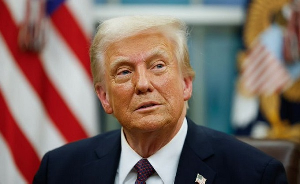By Kwame Okoampa-Ahoofe, Jr., Ph.D.
Garden City, New York
Nov. 2, 2014
E-mail: okoampaahoofe@optimum.net
Receiving the 2014 National Best Teacher Award in Cape Coast, capital of the Central Region, early last month, Mr. Yahaya Mumuni, of Tumu, in the Upper-West Region, decried the decision by administrators of the Ghana Education Service (GES) to terminate the contracts of all non-professionally trained public-school teachers (See "Re-Deploy Sacked Pupil Teachers - 2014 National Best Teacher" Citifmonline.com / Ghanaweb.com 10/6/14).
The decision, we are told, follows the failure of these pedagogical complements to upgrade themselves to the level of certified or professionally trained teachers. What we are not told regards what measures the GES put in place, by way of incentives and/or scholarship programs established for the purpose of enabling these pupil teachers meet the deadlines stipulated by the GES for laudable professional upgrade.
But even as Mr. Mumuni aptly pointed out, a more constructive approach to ensuring that academic standards for all pupils are upgraded, is to equally ensure that all public schools are adequately supplied with teachers, be they professionally trained or otherwise. The ideal measure, of course, is for the Ghana Education Service, in collaboration with the Ministry of Education (MOE), to exponentially increase the number of teacher trainees at the country's teacher-training colleges, as well as in our universities of education. This would necessitate the significant increase in government funding for teacher education. In the meantime, the government may need to establish short-term teacher-training courses geared towards the appreciable upgrading of the skills of these pupil teachers.
If, indeed, the government is serious about ensuring the significant upgrading of the quality of the country's basic educational system, then it may need to seriously consider raising the salaries of professionally trained teachers, both graduate and non-graduate, as a means of attracting some of the nation's best and brightest minds into the profession. While it may be especially flabbergasting these days, nevertheless, it is significant to observe that the standard and quality of public education in Ghana has been falling precipitously since the advent of the nihilistic and rabidly anti-intellectual Rawlings juntas of the Armed Forces Revolutionary Council (AFRC), in 1979, and the equally extortionate and morally bankrupt Provisional National Defense Council (PNDC) regime that lasted the decade between December 31, 1981 and January 1992.
And all indications are that the country's quality of formal education will continue to steadily fall for sometime, until the government of the so-called National Democratic Congress desists from playing political chess games with our proverbial leaders of tomorrow. The duration of our high school system, for example, is as significant as the content of our curriculum; and the sooner Mr. Mahama and his largely cynical lieutenants recognize this stark and inescapable reality, the better would the academic needs of our children and grandchildren be served.
Even here in the United States, where some of the finest and brightest minds around the globe administer our public school system, the imperative need to hiring supplementary, and complementary, or pupil teachers is well recognized. But unlike Ghana, non-certified but highly dedicated teachers are invariably and routinely incentivized to professionally upgrade themselves. Regular professional development workshops and courses are also afforded both experienced and newly hired certified or professionally trained teachers. This progressive direction ought to be the objective and orientation of Ghana's public education administrators. Needless to say, the private school system ought not to be exempt from the same.
Opinions of Monday, 10 November 2014
Columnist: Okoampa-Ahoofe, Kwame
In-Service Sacked Pupil Teachers
Entertainment














